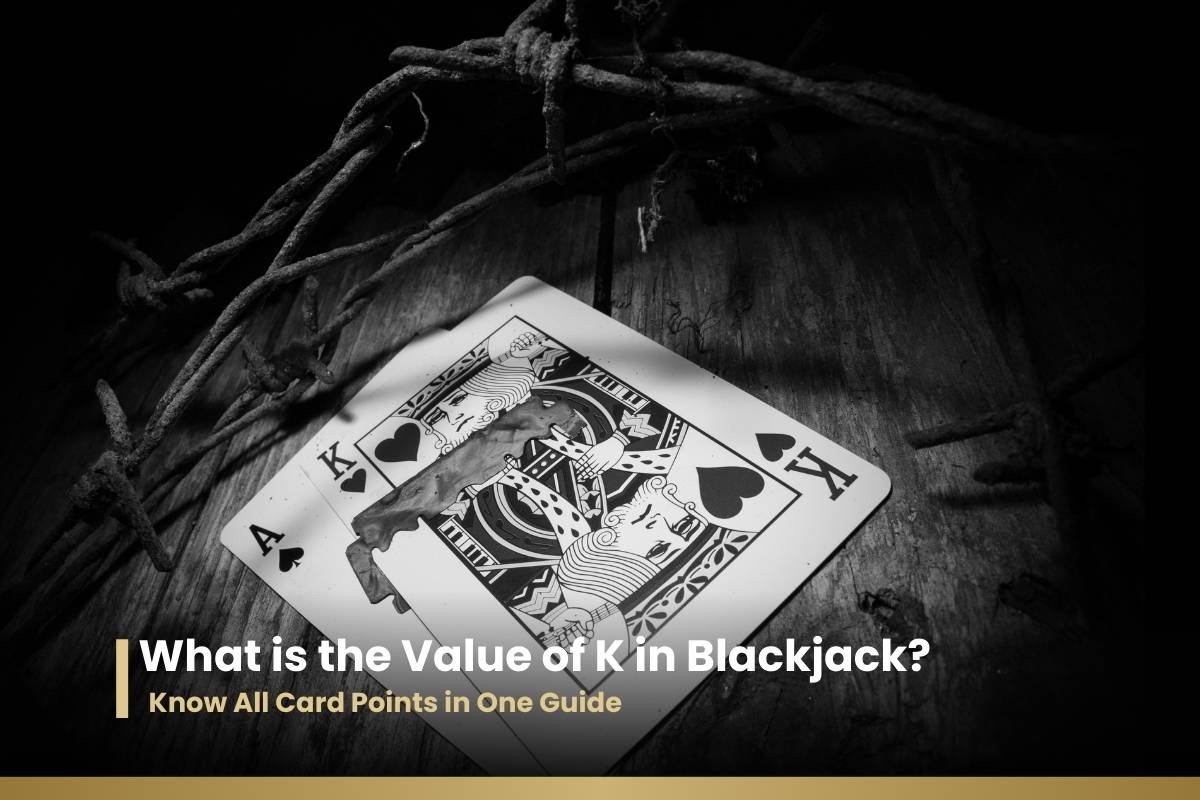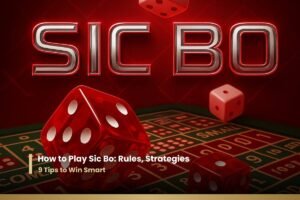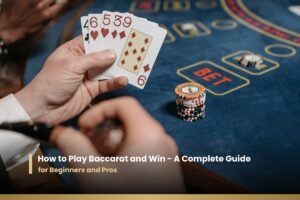Blackjack is one of the most popular and fast-paced card games in both physical casinos and online platforms. Whether you’re a casual player or aiming to develop a winning strategy, knowing the value of each card is essential. Among all cards, face cards like the King (K) often raise questions among new players. So, what is the value of K in blackjack? The King is worth 10 points, just like the Queen (Q) and Jack (J).
In this comprehensive guide, we’ll break down the value of the King, explain how card points work in blackjack, and give you tips on how to use this knowledge to play smarter.
What is the Value of K in Blackjack?
In blackjack, the K (King) is worth 10 points. It holds the same value as the other face cards — Queen (Q) and Jack (J). Despite their regal appearance, face cards don’t differ in value. Their main purpose is to boost your hand total quickly toward the magic number: 21.
👉 Example:
If you’re dealt a K and a 9, your hand total is 19 — a strong hand where you’ll likely stand.
Complete Blackjack Card Values Table
Here’s a complete breakdown of how every card is valued in blackjack:
| Card | Value in Blackjack |
| 2–10 | Face value (e.g., 6 = 6) |
| Jack (J) | 10 points |
| Queen (Q) | 10 points |
| King (K) | 10 points |
| Ace (A) | 1 or 11 (whichever is best) |
Knowing this table is the foundation of all blackjack strategies. Face cards, including the King, play a critical role because of their high value.
Why Face Cards Are So Important in Blackjack
Face cards — J, Q, and K — make up 12 out of the 52 cards in a standard deck, which means there’s a higher probability of landing a 10-point card than any other single card value.
Key Reasons Why They Matter:
- High-value hands: Pairing any face card with an Ace gives you a natural blackjack (21).
- Dealer strategy: When the dealer shows a 10 or a face card, it’s assumed they might be hiding an Ace (potential blackjack).
- Player strategy: Players use face card probabilities to decide when to hit, stand, or double down.
Ace (A): The Most Powerful & Flexible Card
The Ace is special in blackjack because it can count as 1 or 11 depending on the situation.
Soft vs. Hard Hands:
- Soft hand: A hand containing an Ace counted as 11 (e.g., A + 6 = 17)
- Hard hand: A hand where the Ace must be counted as 1 (e.g., A + 6 + 10 = 17)
Understanding the flexibility of the Ace helps prevent busts and keeps your options open during gameplay.
Blackjack Hand Examples for Beginners
Here are a few examples that show how card values work together in real blackjack hands:
- K + A = 21
- This is a natural blackjack — unbeatable unless the dealer also has one.
- This is a natural blackjack — unbeatable unless the dealer also has one.
- Q + 8 = 18
- Strong hand. Most players would stand here unless the dealer shows a 9, 10, or Ace.
- Strong hand. Most players would stand here unless the dealer shows a 9, 10, or Ace.
- A + 6 + K = 17
- The Ace is counted as 1 here to avoid busting.
- The Ace is counted as 1 here to avoid busting.
- 10 + J = 20
- Two face-value cards. Excellent hand — very likely to win.
- Two face-value cards. Excellent hand — very likely to win.
These examples demonstrate how important 10-point cards like K are in blackjack strategy.
Discover the best online blackjack casinos for real money and enjoy secure gameplay, top bonuses, and thrilling live dealer action.
Common Mistakes New Players Make
Understanding card values helps avoid common pitfalls. Here are a few you should steer clear of:
Mistake 1: Assuming Face Cards Have Different Values
All face cards — King, Queen, and Jack — are worth 10 points. Don’t let their names or artwork confuse you.
Mistake 2: Misjudging the Ace
New players often forget that the Ace can be 1 or 11. Always recalculate based on your hand total.
Mistake 3: Ignoring the Power of 10-Point Cards
10-point cards make up nearly 31% of the deck. Many strategies, including card counting, are based on this fact.
Unlock extra thrills with the 21+3 blackjack side bet, combining blackjack and poker for boosted payouts on suited and ranked hands.
Bonus Tips to Win More Blackjack Hands
Want to put your card knowledge to use? Here are a few smart playing tips:
Use Basic Strategy Charts
These charts tell you the mathematically correct action (hit, stand, double, or split) for every hand combination.
Always Assume Dealer’s Hole Card is 10
Since there are more 10-point cards than any other, this assumption helps you plan your moves better.
Manage Your Bankroll
Don’t let a few face cards lead you into betting more than you can afford. Play within your limits and avoid chasing losses.
Avoid Insurance
Even if the dealer shows an Ace, taking insurance is statistically a losing bet over time.
Play blackjack at Ballersbet and turn smart strategy into real wins. Use expert tips like basic charts and bankroll control to boost your edge at every table.
Frequently Asked Questions (FAQs)
Let’s address some of the most common questions.
1. What is the value of K in blackjack?
K is worth 10 points. Same as Queen and Jack.
2. Are all face cards the same value?
Yes. Jack, Queen, and King are all worth 10 points.
3. How is the Ace used in blackjack?
Ace can be either 1 or 11, whichever benefits the hand without busting.
4. What makes a blackjack hand?
A two-card total of 21 — an Ace and any 10-point card (10, J, Q, or K).
5. Can you split Kings in blackjack?
Yes, but it’s often not recommended unless you’re counting cards, as a 20 is a strong hand.
6. What happens if you go over 21 in blackjack?
That’s called a bust, and you automatically lose the hand, regardless of the dealer’s cards.
7. What is a soft hand in blackjack?
A soft hand includes an Ace counted as 11, like A + 6 = 17. It’s more flexible because the Ace can switch to 1 if needed.
8. Is taking insurance a good move in blackjack?
Usually not. Insurance is a side bet that the dealer has blackjack, but statistically, it’s a losing choice over time.
Conclusion: Play Smarter with Card Knowledge
In blackjack, every point counts — literally. The King (K) is worth 10 points, and it’s one of the most powerful cards in the game when combined with others, especially the Ace. By understanding card values, you can make smarter decisions, avoid costly mistakes, and increase your chances of winning.
So next time you sit at a blackjack table and see that King in your hand, you’ll know exactly what it’s worth — and how to use it.
Note: Ballersbet is a betting platform for users 18+. Betting carries financial risk, so please gamble responsibly and make informed choices.

I’m a Michele, Casino Analyst and Reviewer at Ballersbet.com, where I specialize in providing honest insights and expert reviews of the latest casino games and platforms. With a passion for online gaming and a commitment to transparency, I strive to help players make informed decisions in the ever-evolving world of online casinos.






